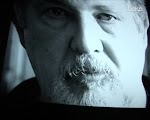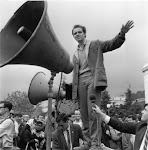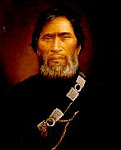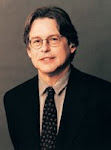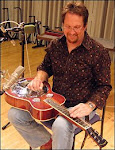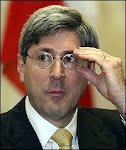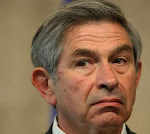
1.
Film is a collaborative medium for which the director gets most of the credit. Crew members whose names are buried in the end titles (or, as in the case of Dana Little, a very good camera operator on a film I directed in 2007, get inadvertently left off the list altogether) often know far more about the film-making process than the director. There's a trade-off, of course. If the film tanks, directing quickly becomes a singular activity. Nonetheless, for people outside the film industry, if they recognise any name associated with a film - apart from the actors who starred in it - it will most likely be the director's.
Why it that? I honestly don't know. Given the status that film directors enjoy (not television directors, curiously) how often is that you come out of a film and say that it was really well directed? As opposed to saying it was a good story, or beautifully shot? Or dull, lifeless, otherwise solid, if you're a critic of particular acuity.
Not that I'm complaining. If you want to be a grip or a gaffer or an art director or a boom operator or a continuity person on a film you have to be able to point to your experience, to show that you can do it.
If you want to be a director, on the other hand, you just have to say that you are one, and if enough people believe you then you're off. I think that's how most directors become directors. They watch a director working and say to themselves: "Hell! I could do that!" Of course, you can be found out. The key is to surround yourself with people who are really good at what they do. They'll cover for you, wittingly or unwittingly, until you get up to speed.
At least that's been my experience.
Unquestionably there are films where the director in particular has done a great job. The Bourne Supremacy is an example of a film that was well-directed, whereas its sequel, The Bourne Ultimatum, is an example of a film that wasn't. The latter was as big and noisy and fast and logistically impressive and utterly pointless and no doubt as profitable as any James Bond film ever made, but a lot of directors could have done it just as well or not much differently. It was impersonal.
But when I watch The Bourne Supremacy I think to myself the guy who directed this really knew what he was doing. He knew the reason behind every glance and gesture and karate chop and car crash, and he made sure the actors and the crew knew as well.
So The Bourne Supremacy, a film which could have been a big piece of schlock (like Ultimatum) was instead intense and personal and affecting. That scene where Jason Bourne tells the Russian girl that her parents' deaths were not a murder-suicide? Sublime.
Every character in Supremacy feels drawn from real life, which is in itself an achievement given that they were all CIA agents and trained assassins and cold-blooded Russian bloatocrats and the like, not the sort of people you might run into at the Busy Bee Dairy or Video Ezy. I can imagine the Jason Bourne from Supremacy standing in the queue at the Bee, barely registering on the security camera, quite happy to let someone else go first, thanking the person behind the counter. Whereas I can't see the Jason Bourne from Ultimatum in the same situation. The dairy would come to him, or be unlikely to stock anything such an unbelievably competent killing machine might possibly want. He would get all his supplies by hacking into the Blackwater site, or carving them with a Ka-Bar knife.
Since Paul Greengrass directed both films, maybe it's the script that made the difference.* Could well be. I have a theory. I've never been able to convince anyone of its validity (Richard Warren maybe, though that could just have been politeness on his part), but I stick to it.
My theory is: It's impossible to make a bad film from a good script. The film might not be as good as it could be in the hands of a Paul Greengrass or a Walter Hill (incidentally, why doesn't that guy work all the time? The first twenty minutes or so of 48 Hours, at about the point where Eddie Murphy shows up - brilliant. Not that it was bad after that, just not exceptional. "Excuse me, sir! Can I get some water for my pick-up?" "Firewater, Tonto - is that what you want?" And, by the way, whatever happened to that guy, the actor James Remar who played mean Albert Ganz? I know I could look it up but I don't want to - I suspect a sad career trajectory), but if the script is good the film will be at least good enough. Or in the case of Walter Hill's films, very good. For example, Robert Zemeckis and Bob Gale (no slugs either of them) wrote a script called Trespass, an updating of the John Huston film Treasure of the Sierra Madre. In the hands of a lot of directors Trespass would have been superior television or a minor film. Not Walter. If you want to see what a director does, first read the script (there's a transcript on Drews-script-o-rama.com http://www.script-o-rama.com/movie_scripts/t/trespass-script-transcript-ice-cube.html) and then watch the film (might have to go to Amazon.com for that) to see how Hill brought the script to sizzling life.
Good scripts are rare and actors and crew won't allow a director to ruin them. I never believe a writer's complaint that his or her vision has been destroyed by a director's ego. If it isn't on the screen it wasn't on the page.
Or maybe I just like The Bourne Supremacy so much because of the local angle. There are two New Zealanders in it. Karl Urban is terrific as the Russian Secret Service agent, and Martin Csoskas' one scene, the fight with Matt Damon in Csoskas' Munich apartment ("It falt a lee-tle lii-ght.") is ten times its Ultimatum equivalent, the endless smack grunt smack fight in the Casbah or whatever that place was. The Munich fight wasn't endless. It was quick and dirty and largely silent and ended at just the right point. Editors might argue that that was great editing, but I doubt it. Editors?
*(Interestingly enough, Tony Gilroy, who wrote the Bourne scripts, was critical of what Paul Greengass did with Supremacy. "In 2005, the studio used another large check to persuade Gilroy to write the third “Bourne” movie. One of the conditions of his taking the money was that he would not have to speak with Greengrass." See The New Yorker, March 16, 2009.http://www.newyorker.com/reporting/2009/03/16/090316fa_fact_max?currentPage=all)


